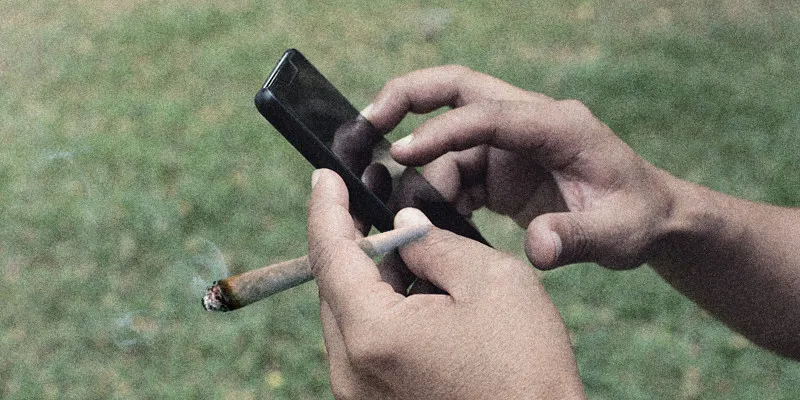In the aftermath of demonetisation, a drug peddler in Bengaluru has taken to mobile wallets for accepting payments from customers. Are "stoners" ready to go cashless?
Suresh, a resident of Chennai, is in a fix, or rather, in need of a fix. The frequent smoker of marijuana, or “weed” as it is commonly known, has been left in the lurch with the prevailing cash crisis. “The cash crunch has definitely been hard on stoners. While some dealers were willing to accept old notes initially, they have long since stopped,” he quips. Amidst all this hassle, it appears that interesting things are afoot.

The ripples of demonetisation have spread far and wide. While stories of cigarette vendors and small-time shop owners taking to digital payments have now become commonplace, the push to go cashless seems to have entered the illicit sector as well, with a marijuana peddler in North Bengaluru accepting payments for his wares through a popular mobile wallet. The peddler, who embraced digital payments after the Centre’s November 8 move to take on the black economy, has been doing good business amidst the ongoing cash shortage.
When informed of this, Suresh says, “Digital payments for weed? Why not? It would certainly sort things out now, and the convenience would make it worth adopting in the long run.”
Mixed views
With the limit for mobile wallet balances recently being raised to Rs 20,000 by the RBI, and the cash crunch hitting addicts as hard as anyone else, digital payment platforms seem to have gained some unorthodox patrons. Mobile wallets offer great convenience to players in the low-end drug business, with “scores” regularly being made for less than Rs 1,000. This is particularly true in the wake of 500 and 1,000-rupee notes ceasing to be legal tender.
YourStory spoke to some frequent buyers of weed to find out how demonetisation has impacted their buying habits, and whether they feel that mobile wallets are a convenient way to go, both in the short term and further down the road. In contrast to Suresh’s enthusiasm, Ajay, a resident of Bengaluru’s Koramangala locality, is sceptical. “I feel that using mobile wallets to make payments could be extremely risky. Should the dealer get caught, the police would have proof of the transaction. Cash offers anonymity that is essential in this area,” he says.
Ashok, another Bengaluru resident, has not been affected too much, given that his buying happens only once a month. “However, some of my friends who are more regular customers have faced problems, either having to pay in 100s, scarce as they are, or fall back on credit, which a few dealers have been extending since the demonetisation. However, they only extend credit to a select few customers, and they’re stingy even then. E-wallets could be convenient for the coming weeks, but I would ultimately go back to paying in cash once things return to normal,” he says.
A common strand in the conversations with buyers is the security aspect, with many fearing that the record of their transaction could easily be pulled up. Most, however, say that they would take to mobile wallets for their needs if offered the choice, particularly in the short term.
Hyderabad-based Anthony is one of the latter, and he has a different take on the transaction history issue. “Even if the dealer was to get caught, the police would never be able to prove that a particular transaction was drug-related. I could always be returning borrowed money, or any number of things. While it could bring some unwanted attention my way, transaction history is an extremely weak basis for an actual case. Getting caught in the act would remain the biggest fear for buyers,” he says.
Police speak
Authorities at the Banaswadi Police Station in East Bengaluru, a region that faces a drug problem, with a fairly high number of colleges in the area, had this to say when questioned on the matter: “We can’t really say how far the drug business was affected by the cash crunch as November is normally a slow month for peddlers. Things pick up in December, and we will see what effect there has been in the coming weeks. While we do see some transactions in foreign currencies with foreign national dealers, we haven’t heard of e-wallets being used for payments. If this is indeed the case, it will be hard to track such payments, and we will have to figure out a way around it.”
Whether this push of drug peddling going digital will carry forward once the cash scenario normalises remains to be seen, especially given buyers’ concerns about leaving behind a record of the transaction. One thing, however, is certain – the demonetisation drive has made for all kinds of innovation and adaptation, not all of which are particularly savoury.
(Names have been changed on request)







